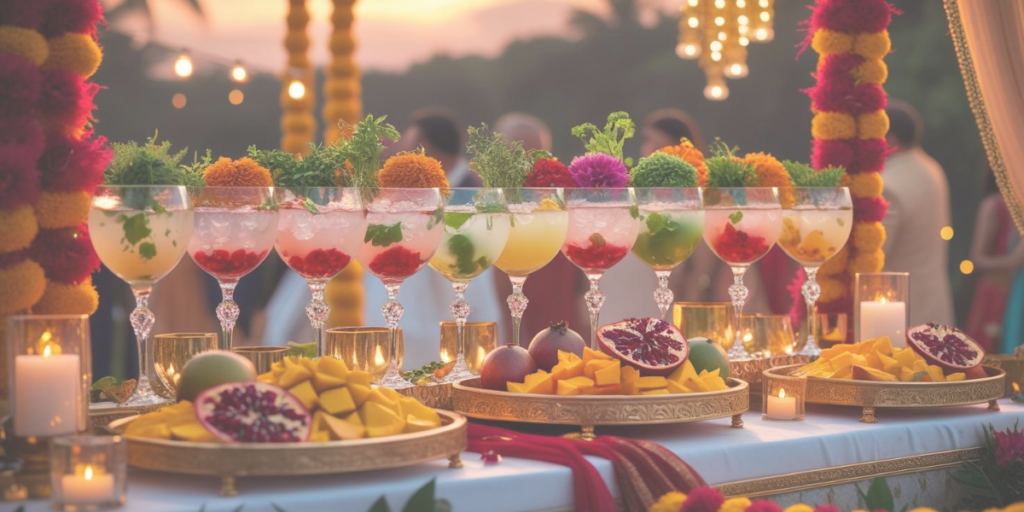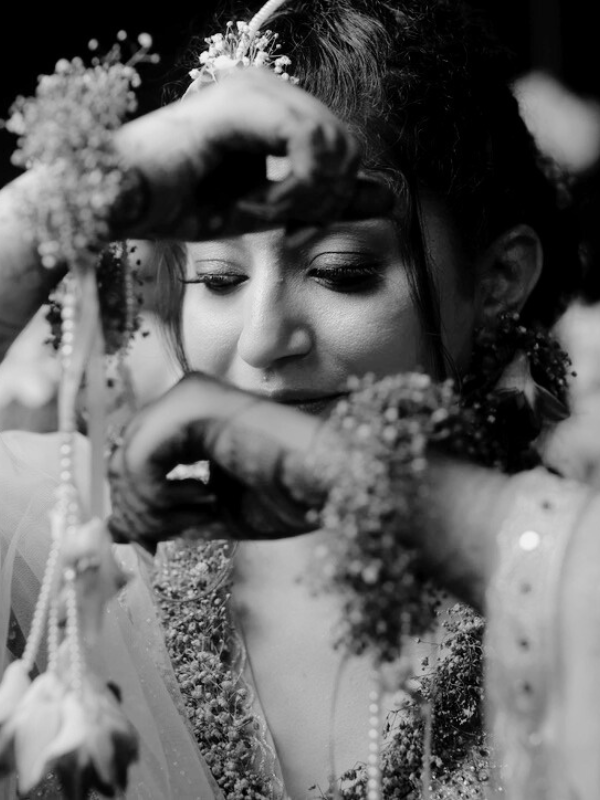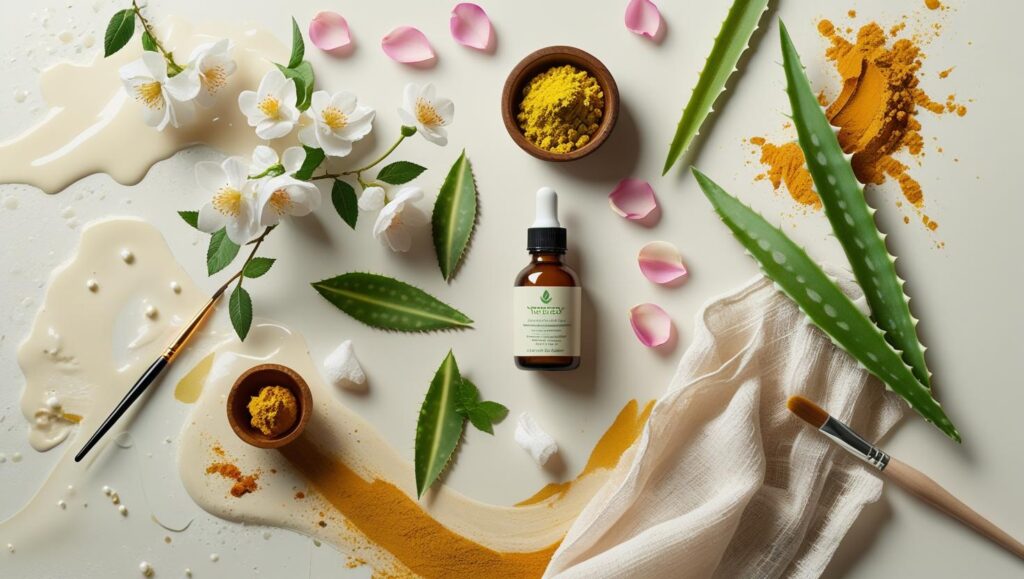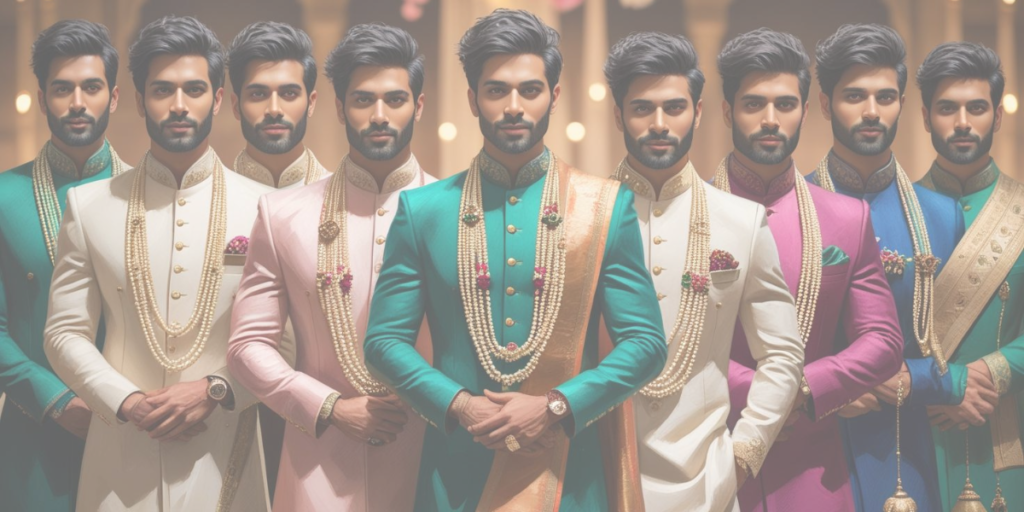The modern Indian wedding is getting a fabulous makeover. Today’s couples are ditching predictable formats and opting instead for deeply personal, immersive experiences that truly reflect who they are.
It’s no longer just about feeding your guests well; it’s about crafting a journey that indulges all five senses and leaves everyone talking about it long after the last song has played.
Naturally, this means couples need to think beyond the basics and be ready to allocate a bigger slice of their budget towards interactive elements, creative styling, and specialists who can bring these immersive ideas to life.
And at the heart of it all? Food and drink. These are no longer just menu items—they’re showstoppers.
From professionally curated tasting stations to theatrical cocktails and edible decor that doubles up as conversation starters, the possibilities are endless.
In this guide, we’ll walk you through the hottest wedding food and beverage trends of 2025-2026 and how to turn your reception into a true feast for the senses.
Mocktail Magic: Zero-Proof, 100% Impressive
Non-alcoholic drink options are no longer an afterthought or a simple juice bar; creative mocktails at weddings have firmly established themselves as a staple, often infused with adaptogens and presented with remarkable artistic flair.
These sophisticated mocktails at Indian weddings are designed to offer balance, complexity, and a premium experience, just like their alcoholic counterparts. This moves beyond simple sugary drinks to genuinely sophisticated non-alcoholic beverages.
This trend caters to a growing segment of wedding guests who, for various reasons, choose not to consume alcohol but still desire a premium, engaging, and memorable beverage experience.
Trending Ingredients & Adaptogens
Adaptogens help the body stay balanced during physical, emotional, or mental stress. These offer mood elevation and a blissful feeling, providing a sophisticated alternative to alcohol.
The following Ingredients are great additions for adaptogenic elixirs:
- Lion’s mane mushroom
- Yerba mate
- Damiana
- Tulsi
- Cacao
Herbal Infusions
There are aromatic herbs that can be used in mocktails:
- Mint
- Basil
- Rosemary
- Lavender
- Hibiscus
Warming chai spices are popular choices, celebrated for their distinct aromatic and flavour profiles that add depth and intrigue.
Here are 20 unique mocktail recipes, including a column for Indian wedding-inspired names, creative garnishes, and flavour profiles:

Signature Sips: Crafting Memorable Wedding Cocktails
In the era of highly personalised weddings, signature cocktails are making a spirited splash—pun intended. Today’s couples aren’t just curating a bar menu; they’re designing an experience. One where every cocktail tells a story, every garnish catches the eye, and every glass is Insta-worthy.
From playful nods to inside jokes to drinks that reflect your honeymoon destination, your wedding bar in 2025 is as much about self-expression as it is about celebration.
Personalised & Thematic Blends – Storytelling Through Sips
Every great love story deserves a signature drink—or two. Or four.
Signature Cocktails with Meaning
Custom drinks are being named after:
- Favourite cities or travel memories (e.g., “Paris in a Glass”, “Goa G&T”)
- Couple’s pets (“Whiskey & Wags”)
- Special moments (“First Kiss Fizz”, “The Proposal Punch”)
- Personal quirks or catchphrases (“Main Character Mojito”, “Drama Queen Daiquiri”)
Seasonal & Themed Pairings
Couples are also tailoring cocktail menus based on the wedding season and event vibe:
- Summer: Light and citrusy (think lemongrass mojitos, mango margaritas)
- Winter: Warm, spiced blends (e.g., chai spiced old-fashioned cocktails or cinnamon bourbon sours)
- Tropical or beach themes: Pineapple rum punch, coconut-lavender coolers
- Royal Mughal themes: Rosewater gin fizz, saffron and cardamom martinis
Curated Cocktail Menus
Offer 2–4 signature drinks that are:
- Visually distinct (different colours/glassware)
- Varied in base spirit (vodka, gin, rum, whisky)
- Balanced in taste (something sweet, something citrusy, something bold)
Pro Tip: Have beautifully printed drink menus or QR codes at the bar—guests love to know what they’re sipping.
Elevated Presentation: Where Aesthetics Meet Mixology
In today’s social media-fuelled celebrations, presentation is everything. A well-dressed cocktail isn’t just a drink—it’s content.
Infused Flavours & House-Made Syrups
Modern mixology leans heavily on natural, local, and house-infused ingredients:
- Herbs: Basil, rosemary, mint, lavender
- Spices: Turmeric, cardamom, ginger, cinnamon
- Floral flavours: Rose, hibiscus, chamomile
- Fruits: Jamun, kokum, mango, guava—perfect for an Indian twist
Garnishes That Impress
Ditch the boring lemon wedge—think:
- Edible flowers or pressed petals
- Candy floss toppers or funfetti rims
- Fruit skewers or freeze-dried berries
- Ice cubes with herbs, petals, or glitter
- Chilli peppers or star anise for drama
- Gold-dusted citrus peels for luxe appeal
Statement Glassware
Your choice of glass tells a story, too.
- Coupes = vintage elegance
- Highballs = fresh and modern
- Copper mugs = always on trend (hello, Moscow Mule!)
- Crystal tumblers or brass goblets = ideal for regal or boho themes
Venue Tip: Set up a mini photo area near the bar with stylish backdrops, neon signs, or fun drink props to encourage sharing. Tag-worthy drinks = free wedding PR.

Wedding Food Extravaganza: A Curated Culinary Journey (2025 Edition)
Live Chaat Theatres
These aren’t just counters; they are interactive culinary performances that engage all senses.

Elevated Main Courses
A diverse array of gourmet main courses, focusing on regional authenticity, innovative fusion, and dietary inclusivity.

Decadent Desserts & Sweet Boutiques
A luxurious and imaginative spread of traditional and fusion sweets, with emphasis on artistry and unique flavour profiles.

Refreshing Fruits & Artisanal Fruit Displays
Beyond simple cut fruit, these displays are works of art, offering refreshing and healthy options.

Bar Snacks (Beyond the Ordinary)
These bar snacks are designed to complement a vibrant bar, offering substantial and creative bites.

Wine Snacks (Refined Pairings)
Elegant and sophisticated snacks designed to complement fine wines.

Unique Food Experiences for Your Guests
The Indian wedding scene in 2025 is bursting with creativity, and nowhere is that more evident than on the plate.
From interactive food stations to conscious catering, the modern couple is going all out to ensure every bite tells a story.
Interactive Food Stations: Where Flavour Meets Fun
Gone are the days of static buffets and predictable menus. What’s trending now?
Immersive, build-your-own experiences that double up as entertainment! These engaging food stations are not only visually stunning but also a celebration of choice, creativity, and connection.
Here are some interactive food station options for Indian weddings:
Live Cooking Stations
Watch your meal come alive as chefs prepare dishes right in front of your eyes, adding a theatrical flair to the experience.
- Made-to-order taco or pasta bars with custom toppings
- Fresh sushi rolled on demand
- Sizzling noodle stir-fry counters with Asian flair
- Cheese-wheel pasta flambé for a bit of drama
- Gourmet burger bars with artisan buns and handcrafted patties
Grazing Tables & Charcuterie Displays
Think edible art installations! These luxurious spreads are as much decor as they are delicious.
- Assorted cheeses, cold cuts, dips, olives, breads, and seasonal fruits
- Style the grazing table with florals, foliage, and luxe platters
- A grazing table is ideal for cocktail hour mingling
Build-Your-Own Bars
Empower guests to play chef with customisable stations.
- Salad bars with endless toppings and dressings
- Mac & cheese bars with quirky add-ons like jalapeños, mushrooms, or truffle oil
- Chaat counters, make-your-own taco stations, or even DIY pani puri bars for desi flair
Tip: Make sure there’s clear signage for allergens and ingredients. A few extra staffers at each station also help keep things smooth and stylish.
Global Flavours & Fusion Feasts
Food is culture, memory, and identity rolled into one, and Indian weddings are embracing this fully. From the couple’s favourite travel-inspired dishes to meals that reflect their heritage or story, fusion cuisine is the new love language.
Popular global food options for Indian weddings:
- Italian indulgence: creamy risottos, truffle pasta, and antipasti platters
- Asian street food: sushi rolls, dim sum baskets, Thai curries, or ramen bowls
- Mexican fiesta: street tacos, loaded nachos, quesadillas, and zesty guac
- Fusion favourites: Korean BBQ meets butter chicken, or tacos stuffed with paneer tikka
- Mediterranean magic: mezze spreads, hummus bowls, olives, and feta-laced delights
Couples are using food as a storytelling device, and caterers are stepping up as culinary narrators. Expect deeper consultations, bespoke menu curation, and dishes that reflect everything from family roots to first dates.
Conscious Catering: Plant-Forward & Planet-Friendly
With sustainability going mainstream, modern Indian weddings are seeing a significant rise in eco-conscious dining. From plant-based menus to zero-waste planning, couples are choosing dishes that reflect their values, without compromising on flavour or finesse.
Trending choices for Vegan catering for Indian weddings:
- Vegan lasagna layered with seasonal veggies
- Stuffed bell peppers with quinoa and herbs
- Jackfruit tacos or millet biryani for a desi touch
Pro tip: Highlighting your sustainable choices in the decor, invites, or event signage not only spreads awareness but adds to your wedding’s unique identity.
Seamless Execution: Planning for Success
Even the most innovative and imaginative food and drink concepts require meticulous planning and flawless execution to ensure a smooth, enjoyable, and stress-free experience for all guests.
Optimising Guest Flow & Station Placement
Strategic planning for guest traffic flow is paramount to prevent bottlenecks, reduce wait times, and significantly enhance overall guest satisfaction. Food service is not solely about flavor; it is equally about ensuring a seamless flow throughout the event.
The powerful statement, “You know the referee has done a good job if their performance isn’t mentioned. With your event, you know it has been successful if no-one mentions the ‘flow'”, profoundly implies that seamless execution is not just a practical necessity but a defining characteristic of a high-quality, luxurious event.
When guests are unaware of any logistical friction—such as long lines, slow service, or crowded areas—it significantly elevates their perception of the entire experience, making it feel effortlessly elegant and perfectly orchestrated.
Key strategies for optimising guest flow include:
Strategic Placement: Position food stations and bars thoughtfully, away from main thoroughfares but still easily accessible from multiple directions. Placing them strategically around the perimeter of the room maximises open floor space and significantly improves guest movement.
Double-Sided Access: For buffet-style service, design stations with double-sided access whenever possible. This simple adjustment allows twice as many guests to serve themselves simultaneously, drastically reducing queue times.
Spreading Stations: Avoid congestion by limiting the number of stations open at once and spreading them strategically across the venue. This encourages guests to circulate and explore, promoting a dynamic atmosphere.
Buffer Zones: Design and optimize buffer zones and waiting areas around popular stations to comfortably accommodate guests without impeding traffic flow.
Dedicated Staff at Stations: Assign dedicated attendants or chefs to each interactive station. Their role is to assist guests, answer questions, and meticulously maintain the cleanliness and presentation of the station.
Bite-Sized Portions: Offer smaller, bite-sized portions at stations. This encourages guests to sample a wider variety of offerings from multiple stations without feeling overly full or wasteful.
Clear Signage: Implement clear and informative signage at each station, detailing ingredients, flavour profiles, and crucial allergen labels.
This means event planners must prioritise “behind-the-scenes” operational excellence with the same rigour as “front-of-house” aesthetics. This demands meticulous floor planning, comprehensive staff training in guest flow management, and a proactive approach to problem-solving before issues arise. It also underscores the importance of investing in appropriate equipment and layout design that supports efficient movement and service.
Staffing for a Flawless Experience
Adequate and well-trained staff are crucial for ensuring guest satisfaction and the overall success of the event, particularly when incorporating dynamic interactive food and drink stations.
The detailed guidelines and recommended ratios for staffing underscore a critical point: staffing should not be viewed merely as a cost centre, but rather as a direct and crucial investment in the overall guest experience.
Understaffing inevitably leads to undesirable outcomes such as long queues, delayed service, and a diminished perception of the event’s quality. Conversely, appropriate and sufficient staffing ensures seamless operations, allows for personalised attention at interactive stations, and contributes significantly to overall guest satisfaction. This directly impacts the achievement of a “seamless event experience.”
Key ratios and roles for staffing include:
General Guideline (Plated Meals): A common rule of thumb suggests 1 server for every 10-15 guests or 15-20 guests for plated dinners.
Buffet/Family Style: These service styles generally require fewer servers compared to a formal plated dinner, as guests serve themselves or dishes are shared communally.
Bartenders: For events offering only beer and wine, one bartender per 50 guests may suffice. However, for full-service cocktail bars, a ratio of 1 bartender for every 30-40 guests is recommended. For a 100-guest event, planning for 1-2 bartenders is typically appropriate.
Bussers: Essential for continuously clearing plates, maintaining table cleanliness, and ensuring the venue remains tidy. A ratio of 2-3 bussers for 100 guests is often recommended.
Food Station Attendants/Chefs: Crucial for interactive stations, these staff members assist guests with customisation, maintain the station’s presentation, and ensure smooth operations.
Head Waiter/Host: A dedicated head waiter or host is vital for overseeing the entire service operation, managing staff, and addressing any guest needs or concerns.
The precise number of staff required is influenced by several key factors, including the total guest count, the chosen service type (plated, buffet, family-style), the overall length of the event, the complexity of the menu, the venue layout (especially distances between kitchen and service areas), guest demographics, and any specific requests or dietary needs. Couples and event planners should allocate a sufficient and realistic portion of their budget towards staffing, recognising that this expenditure directly contributes to the success, elegance, and perceived luxury of their event. Caterers, in turn, should proactively highlight their comprehensive staffing plans as a key value proposition, demonstrating their commitment to flawless service and guest comfort.
Vendor Collaboration: Your Dream Team
Establishing clear, honest, and organized communication with all wedding vendors is absolutely paramount for a smooth, dream-like planning process and the flawless execution of the event. The advice to “trust the professionals” , to “build a positive relationship” , and the underlying idea that vendors are a “dream team” fundamentally shifts the nature of the vendor-client relationship from a purely transactional one to a collaborative partnership.
This is particularly crucial for complex, multi-sensory events where various specialized vendors—caterers, florists, mixologists, designers, entertainment providers—must work in seamless harmony. Effective, transparent communication is the cornerstone of fostering this partnership, ultimately leading to a more cohesive, successful, and stress-free outcome for all parties involved.
Best practices for vendor collaboration include:
Be Prepared: Enter every meeting or consultation with a clear understanding of the budget and a well-defined vision of what is desired. This prevents misunderstandings and saves time.
Be Honest: Be forthright about likes, dislikes, priorities, and any unique circumstances or concerns. Vendors are there to help realise the couple’s vision, so honesty is key to avoiding disappointment. It is important not to hesitate to voice concerns or preferences.
Be Organised: Maintain a meticulous system for wedding-related communications. Keep emails filed by vendor in individual folders, respond promptly (ideally within two days), and always follow up verbal discussions with written confirmations. This creates a reliable paper trail and ensures nothing is forgotten. For creative requests, providing visual references like photos is highly recommended.
Understand Communication Preferences: Proactively ask vendors about their preferred methods of communication (email, phone, text) and their typical response times. This sets realistic expectations and ensures efficient interaction.
Single Point of Contact: Designate one primary person (e.g., the couple or the wedding planner) to communicate with all vendors. This centralises information, minimises confusion, and prevents important details from being missed due to multiple, potentially conflicting, requests.
Trust the Professionals: Remember that wedding vendors are experts in their respective fields. Trust their professional expertise and appreciate their time and insights. They are dedicated to making the wedding a success.
Build Positive Relationships: Cultivate a positive and appreciative rapport with vendors. Being kind and respectful can encourage them to go above and beyond, making the planning process more enjoyable and effective.
Wedding planners can strategically position themselves not just as organisers, but as facilitators of these vital partnerships, ensuring that all vendors are fully aligned with the couple’s vision and are collaborating effectively.
For couples, this suggests that vendor selection should extend beyond mere pricing to include an assessment of communication style, collaborative potential, and the vendor’s ability to integrate their services seamlessly with others.
Your Wedding, A Feast for the Senses
The modern wedding reception is an extraordinary opportunity to transcend tradition and create a truly personalized, immersive, and unforgettable celebration. By embracing unique food experiences, innovative drink concepts, and thoughtful edible decor, it is possible to craft a sensory journey that delights every guest and leaves a lasting impression.
Couples are encouraged to dare to move beyond the conventional; infuse their unique love story and values into every culinary and libation choice. From the sizzle of interactive food stations to the artful presentation of zero-proof wonders and the fragrant beauty of edible centrepieces, the reception can become a vibrant reflection of the journey together.
The key to bringing this sensory vision to life lies in meticulous planning and seamless execution. It is advisable to start early, communicate clearly, and collaborate closely with a dream team of culinary and event professionals. Together, they can orchestrate a celebration that is not just seen and heard, but truly tasted, smelled, and felt, creating memories that will be savoured for a lifetime.




